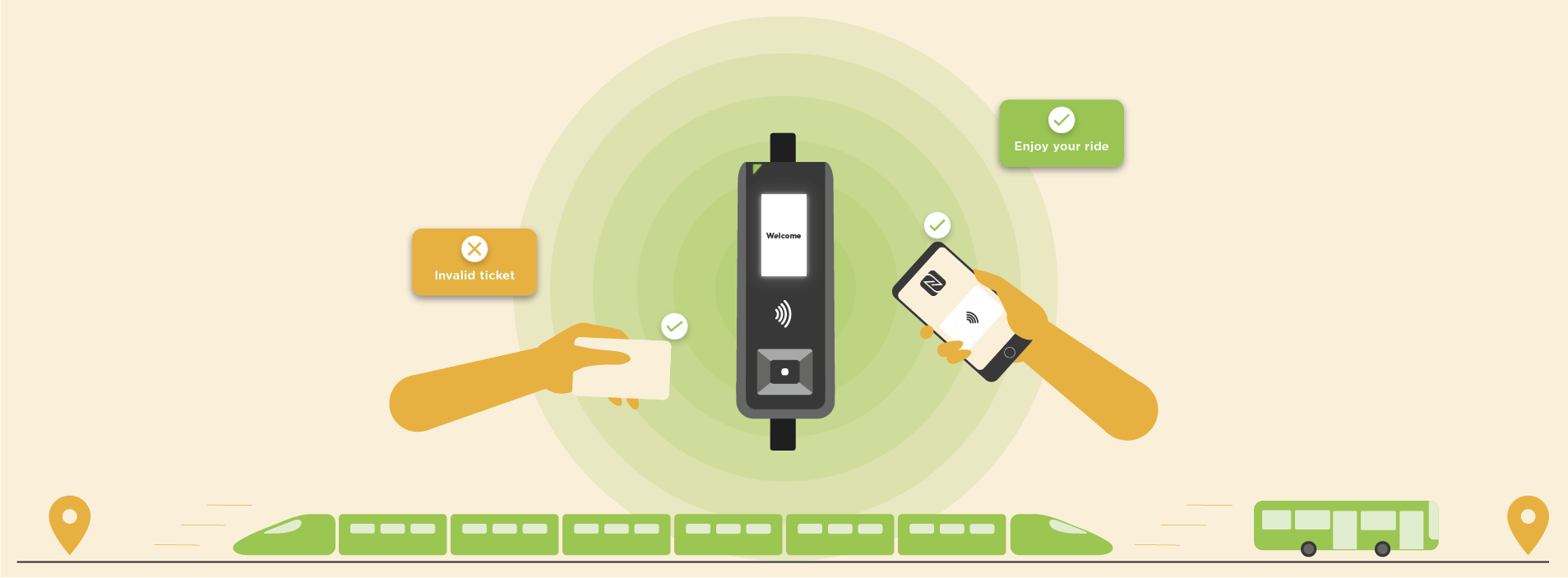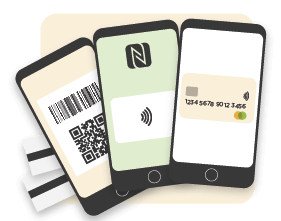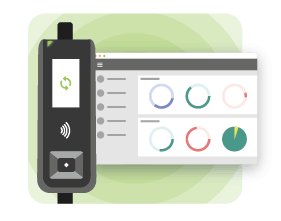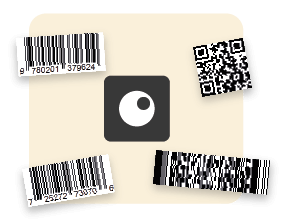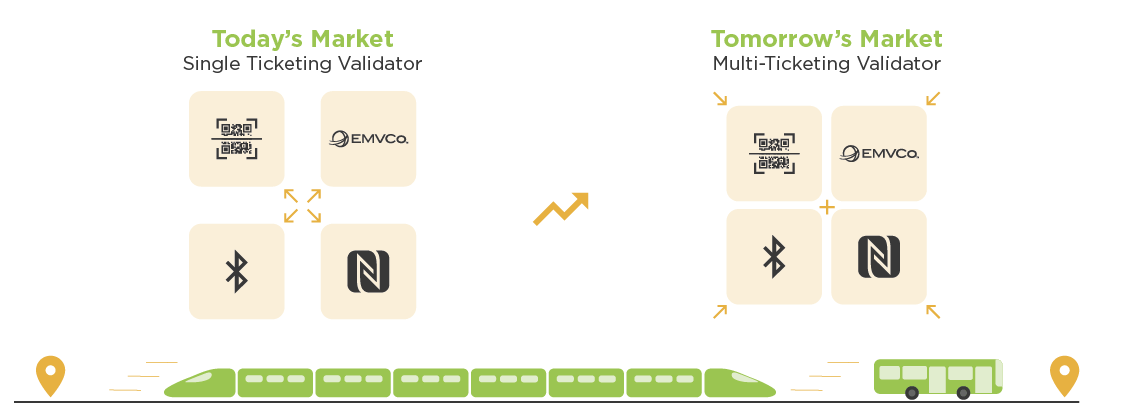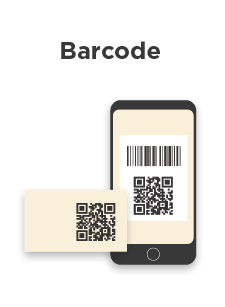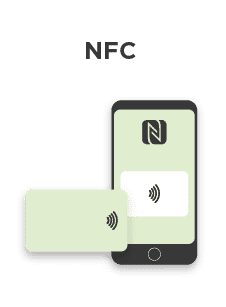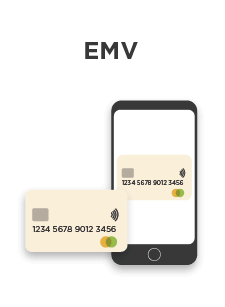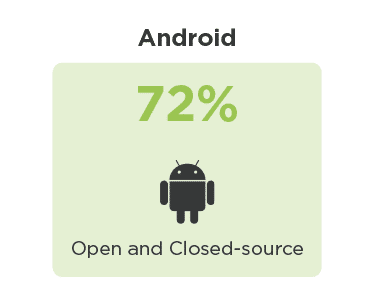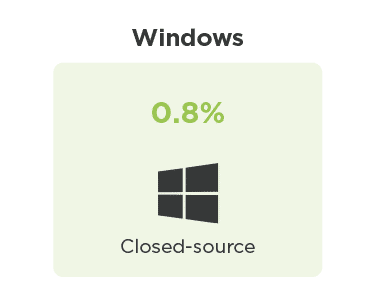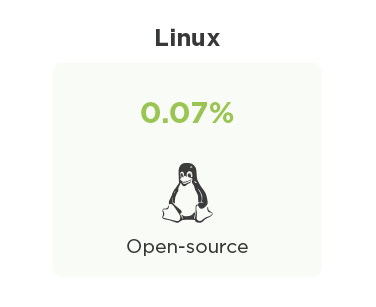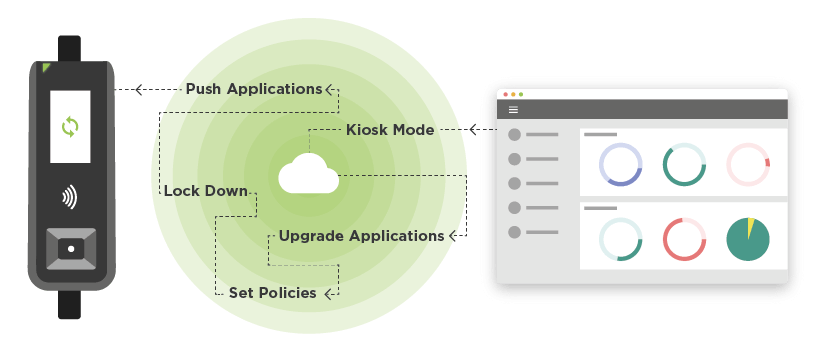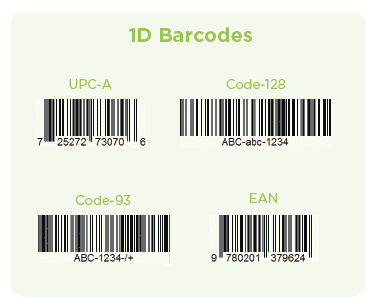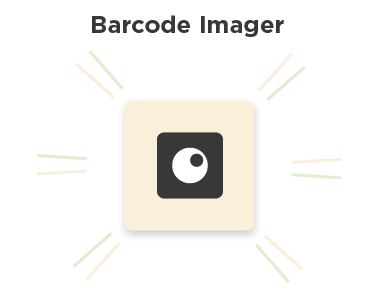What are the transportation operators’ needs?
Installing a ticket validator in each vehicle of the network usually costs a large amount of money for transport operators. They invest massively to build a well-structured transportation network and are always seeking to reduce operational costs.
Their other main objective is to improve their passenger’s journey: public and private transportation companies are looking to change the way passengers pay their fare. Today, there are many ticketing methods such as magnetic swiping cards, printed barcode tickets, in-app QR codes, in-app virtual smart cards using NFC technology, plastic travel cards using NFC antennas, bank cards using EMV technology or even Bluetooth. Too many options become a burden for companies and regional public transport authorities as they have to choose between ticketing methods and find a system that has scalable features to meet future transportation needs.
We decided to offer a flexible device with additional modularity to meet market expectations in terms of price and technology including an NFC reader, barcode scan engine and touch panel. Plus, Famoco’s vision was to build an affordable validator for SMEs and international organization in need of a powerful, adaptable and straightforward solution. Today, only a few products can process multi-ticketing methods but they are not designed to be customized in the future to meet tomorrow’s ticketing expectations.
Open Payment is coming in 2019
Famoco is currently working on integrating an EMV module inside the FX920 to support open payment. Public Transport Authorities won’t have to choose one technology for their transport network as Famoco will deliver a single ticket validator supporting multipayment modalities such as Open Payment, standard travel cards and virtual tickets.



